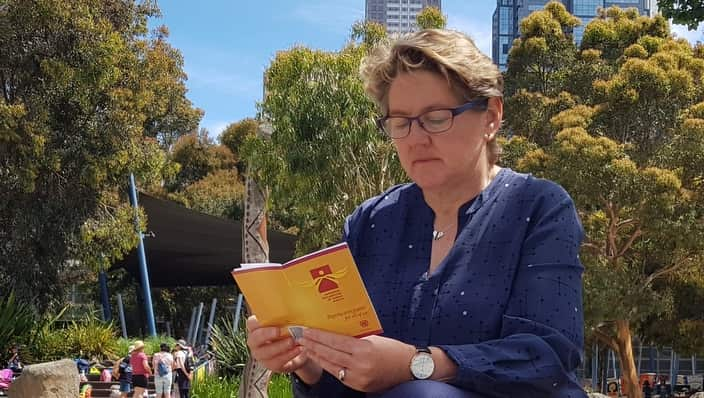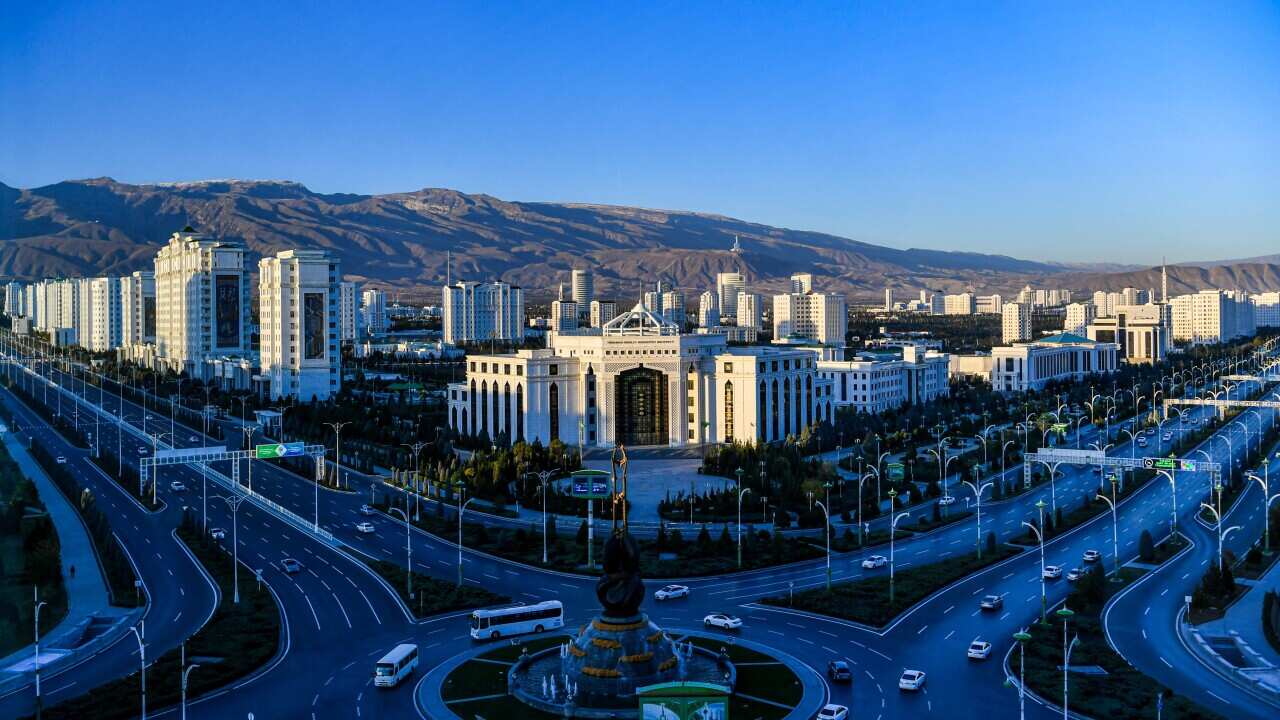The (UDHR) was drafted after the Second World War and set out for the first time the basic rights and fundamental freedoms to which all human beings are entitled.
It is an international document that states human rights are to be enjoyed by all people, no matter who they are or where they live and was adopted by the United Nations General Assembly in Paris on the 10th of December 1948.
Australia played a key role
Before the Second World War, it was thought countries were sovereign nations - that what went on within their borders was up to them. But after the conflict, it was decided international standards were needed.

Dr Herbert Vere Evatt at the United Nations in 1949. Source: National Archives of Australia
Australia was one of the eight nations involved in drafting the universal declaration. The head of Australia’s delegation to the UN, Dr Herbert Vere Evatt, was president of the General Assembly when the document was adopted.
Millions of people - men and women and children all over the world, many miles from Paris and New York - will turn for help and guidance and inspiration to this document. - Dr H V Evatt, Former UN President
'A rulebook for life'
The document has been described as "a rulebook for life".
"Every sporting code; soccer, netball, cricket, they all have rules that they live by, they play by," said Professor Paula Gerber, deputy director of the Caston Centre for Human Rights at Monash University Law School.
"The Universal Declaration of Human Rights is really the rulebook for society, for global society, that we all must abide by," she told SBS News ahead of its 70th anniversary.

Prof Paula Gerber wants all school children to be given a copy of the Universal Declaration of Human Rights. Source: SBS
The declaration includes civil and political rights, such as the right to life, freedom, free speech and privacy. It also includes economic, social and cultural rights, such as the right to welfare, housing and healthcare.
Countries are not legally required to comply with the declaration but Professor Gerber says the document has informed attitudes and contributed to behind the scenes negotiations and actions that have helped protect people's rights.
"International human rights law is not like domestic law, there is not a police force that you can go to to enforce the law and arrest people who break the law," she said.
"International human rights laws require the cooperation and the consent of nations to be bound by it."
"And this document has stood the test of time - people still revere it and respect it."
"Nations do generally have a lot of goodwill towards this document and are willing to abide by it."
But, she says, there are areas for improvement, including on Article 14.
Everyone has the right to seek and to enjoy in other countries asylum from persecution. - Universal Declaration of Human Rights, Article 14
"Article 14 says everyone has the right to seek asylum in another country if they are being persecuted," she said.
"And I don't think this is informing the Australian government's position on dealing with asylum seekers and refugees."
"There is this demonising of asylum seekers: they are referred to as illegals, as queue jumpers, and that is simply wrong."
"They have a right to seek asylum if they are being persecuted."
Australia has 'a long way to go'
Co-chair of the National Congress of Australia's First Peoples, Jackie Huggins, says 70 years after the adoption of the declaration human rights are not universal.
"In terms of our country, we still have a very long way to go. Aboriginal people are still not being heard or listened too," she said.
Higher rates of incarceration, domestic violence, unemployment and housing shortages in Indigenous communities compared with non-Indigenous communities show there is not a common standard of care and protection for all people in Australia, she said.
“Governments need to act and implement the wishes of the community, but also knowing that in most communities community-controlled organisations and institutions have the solutions ... So they need to listen to our people."
Professor Paula Gerber also believes Australia has also fallen short implementing Article 26, which states that education should strengthen respect for human rights and fundamental freedoms
“Even though it is in the Guinness Book of World Records as the most translated document in the world, our children are not learning about it, it is not part of our curriculum," she said.
She would like every child in Australia to be given a copy of the declaration to study.
"We cannot expect to have human rights respecting culture if people do not know about their human rights."
"The first step towards making sure rights are respected it knowing about them."










